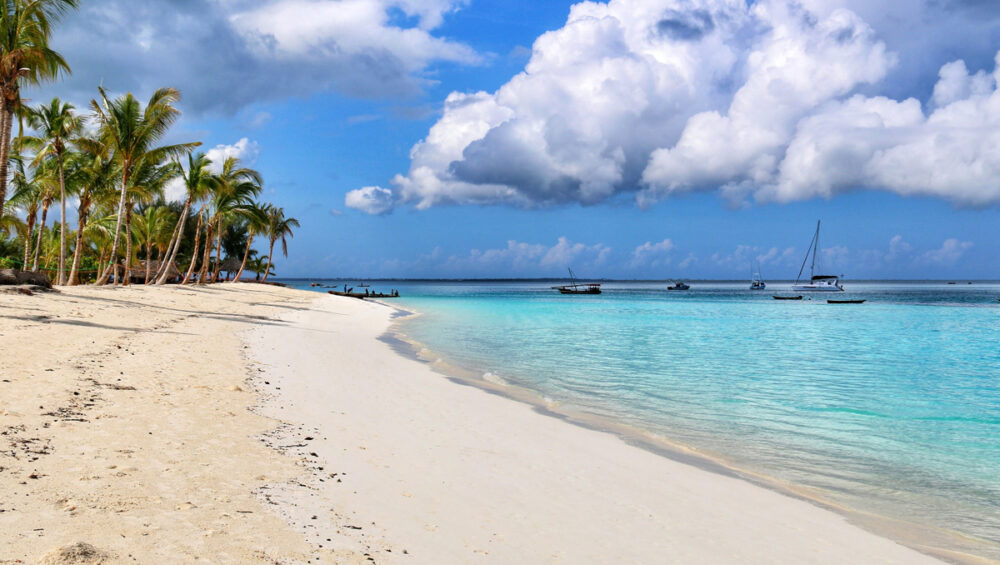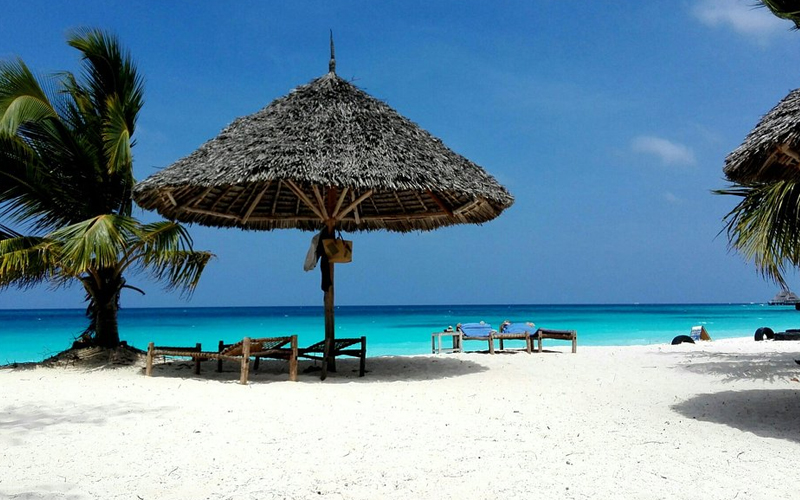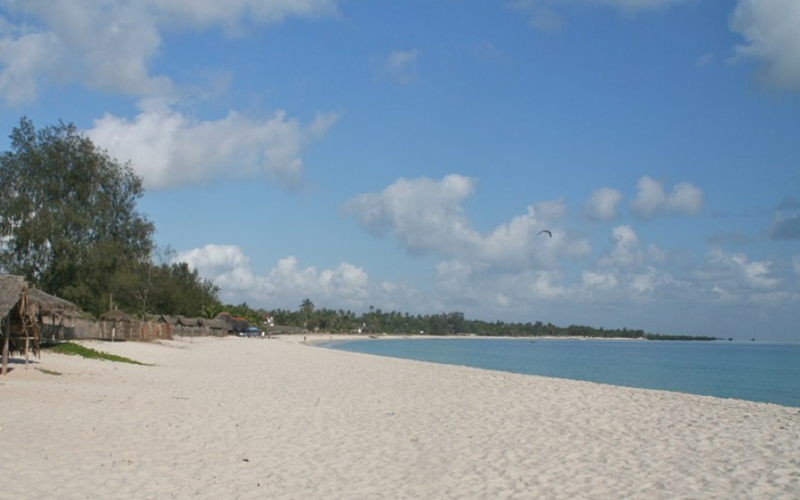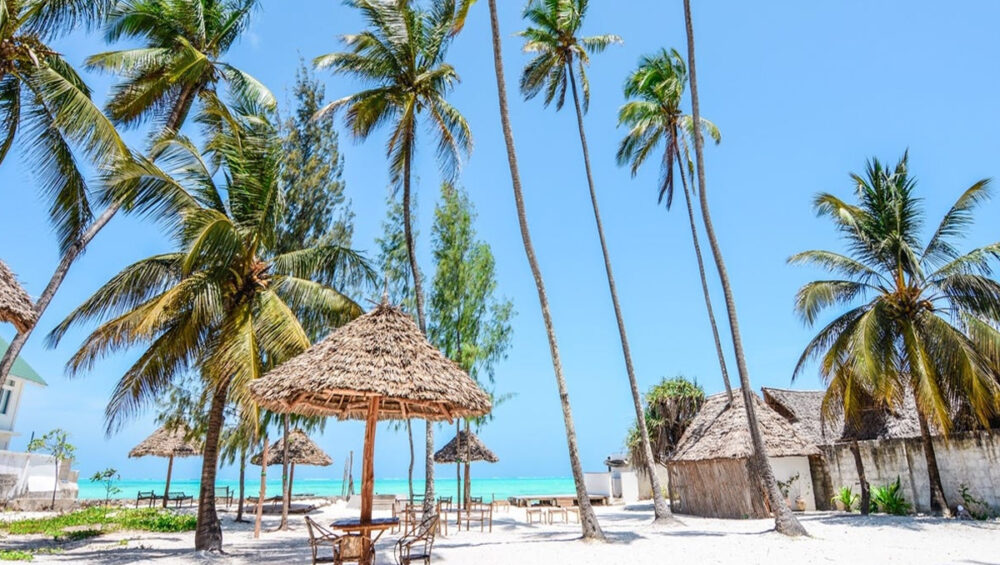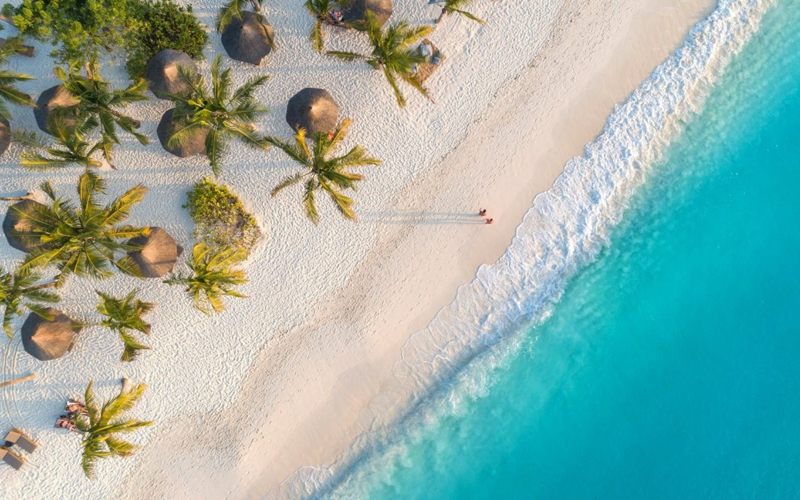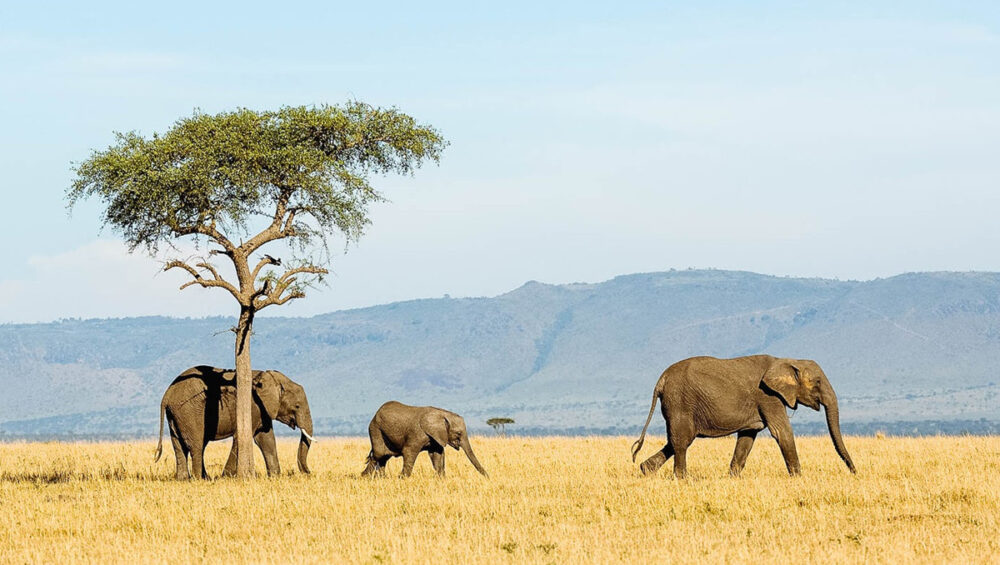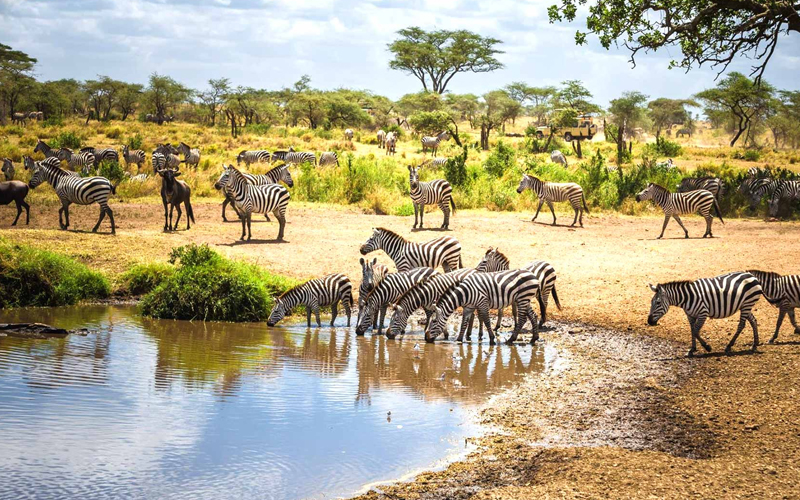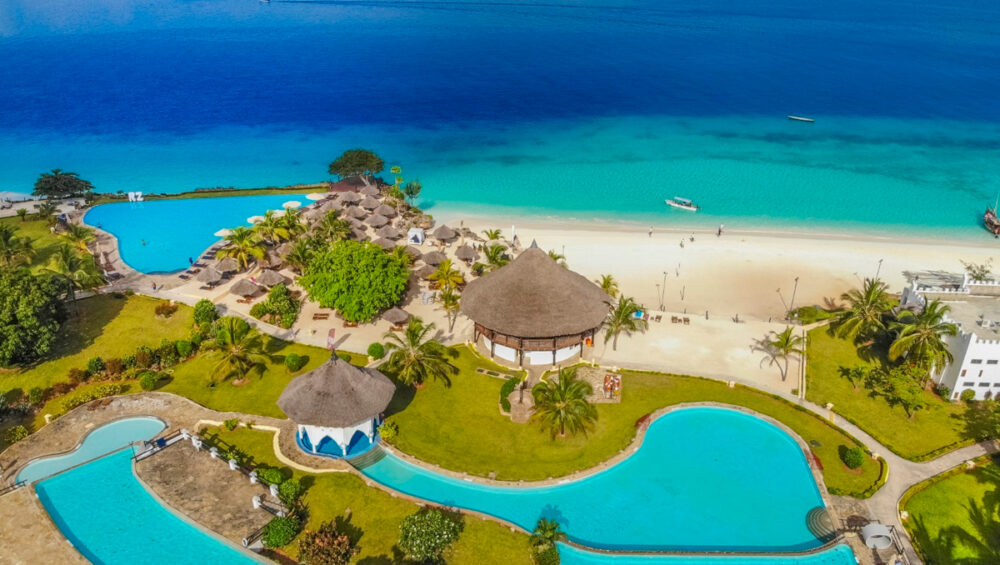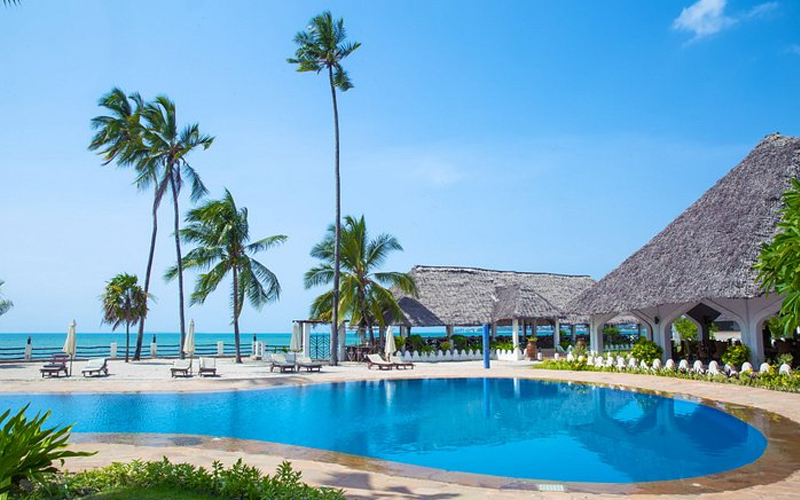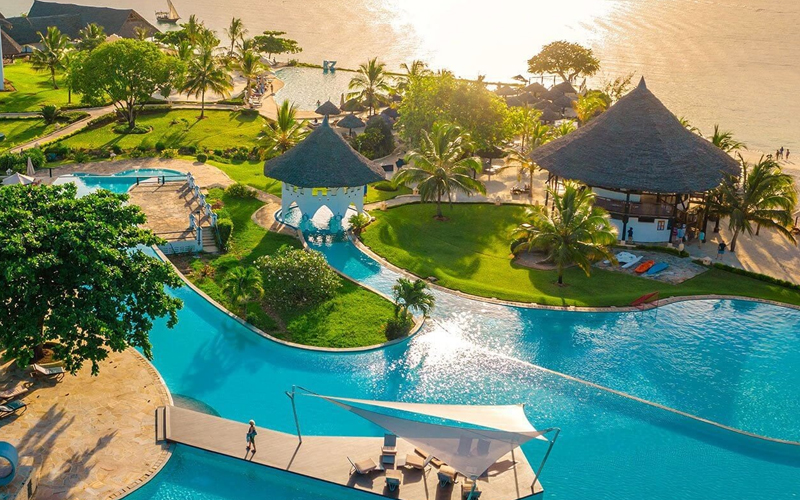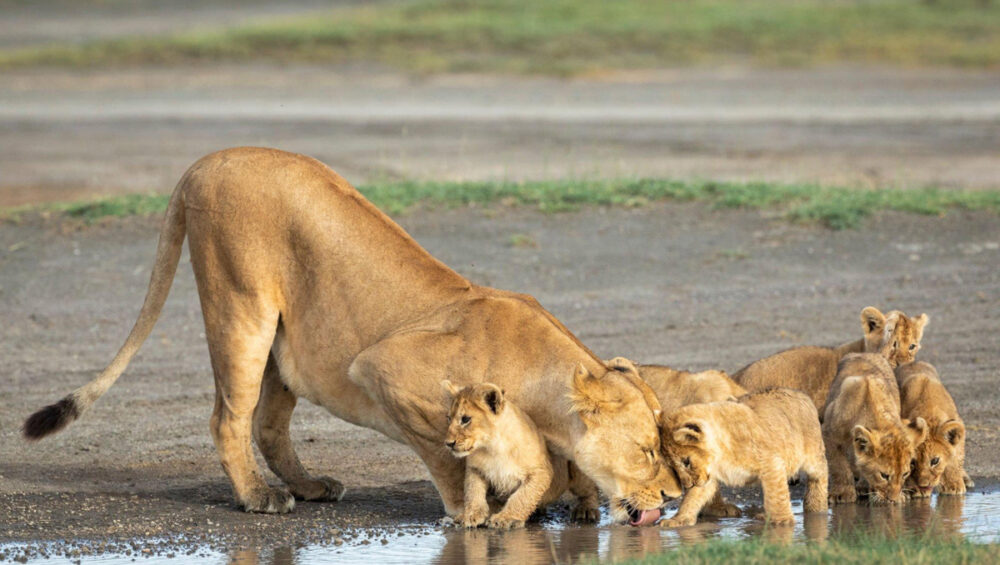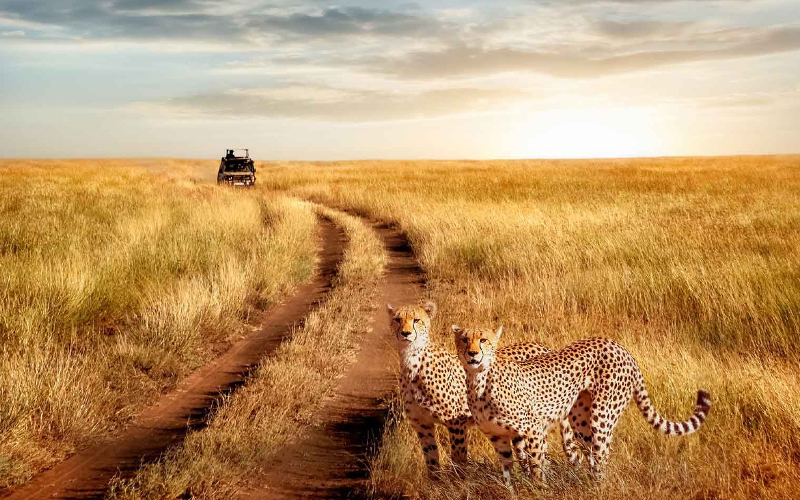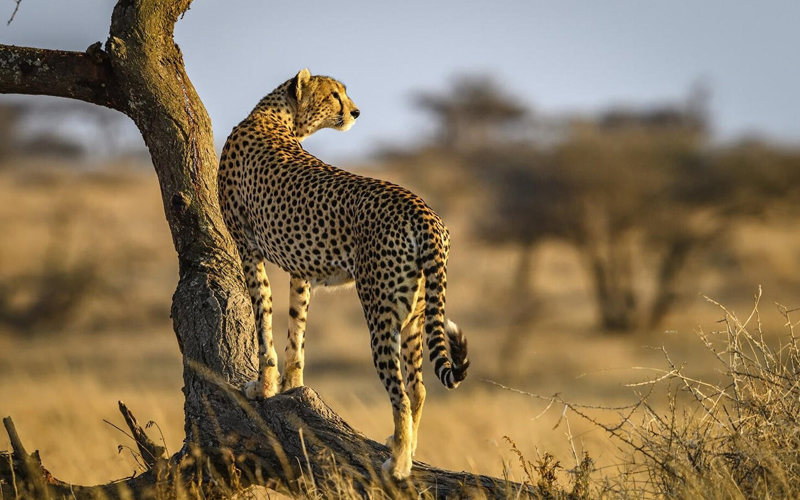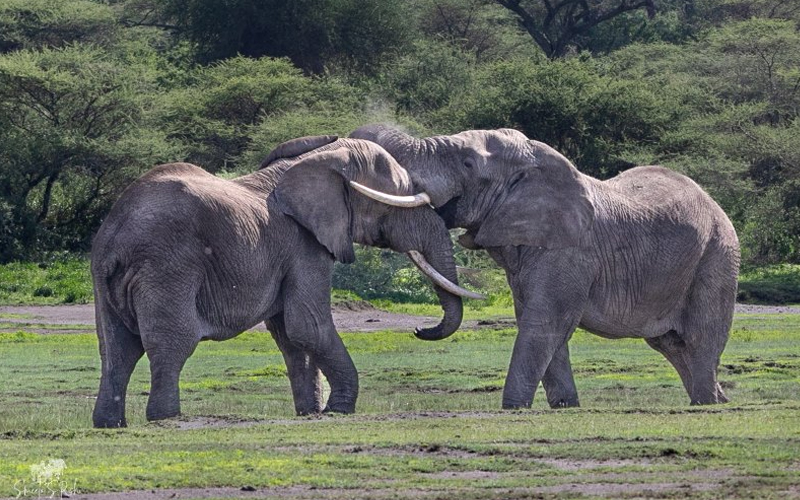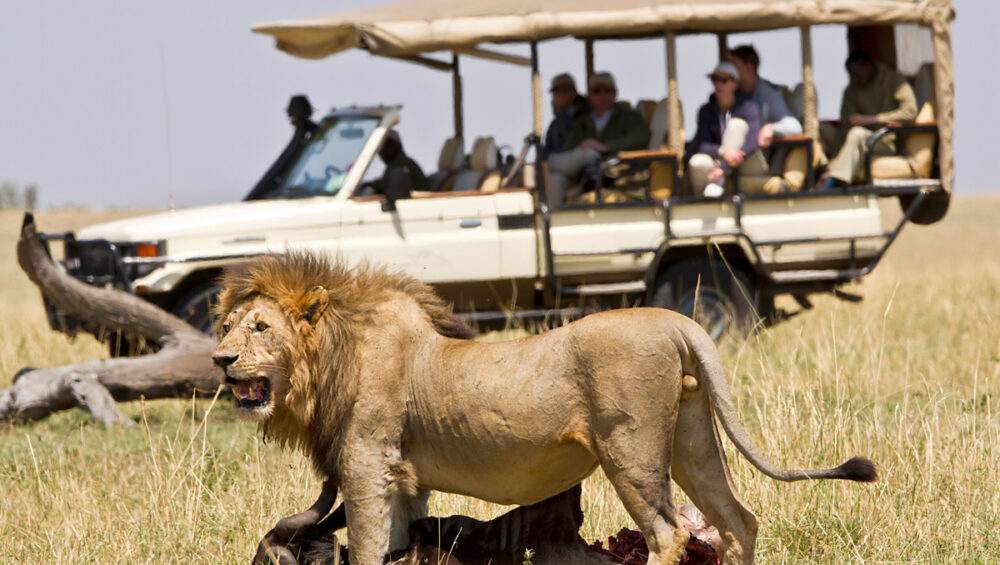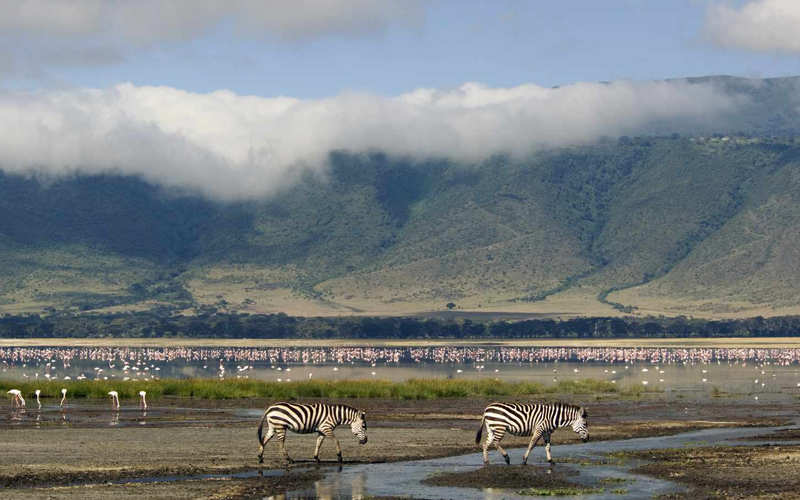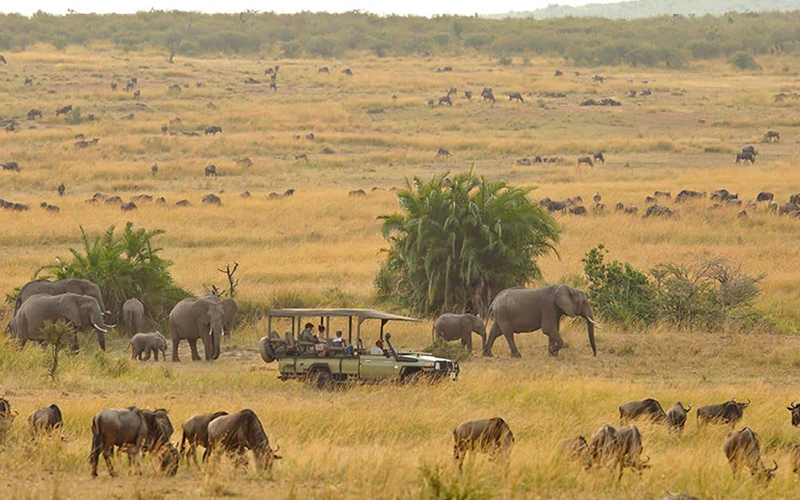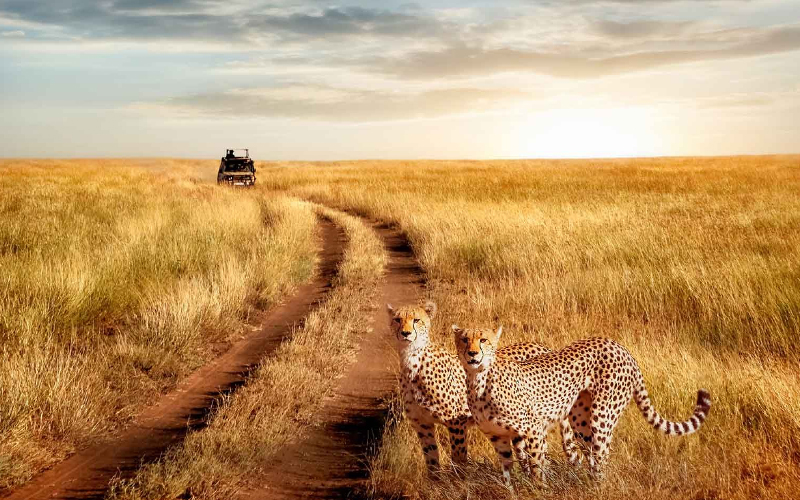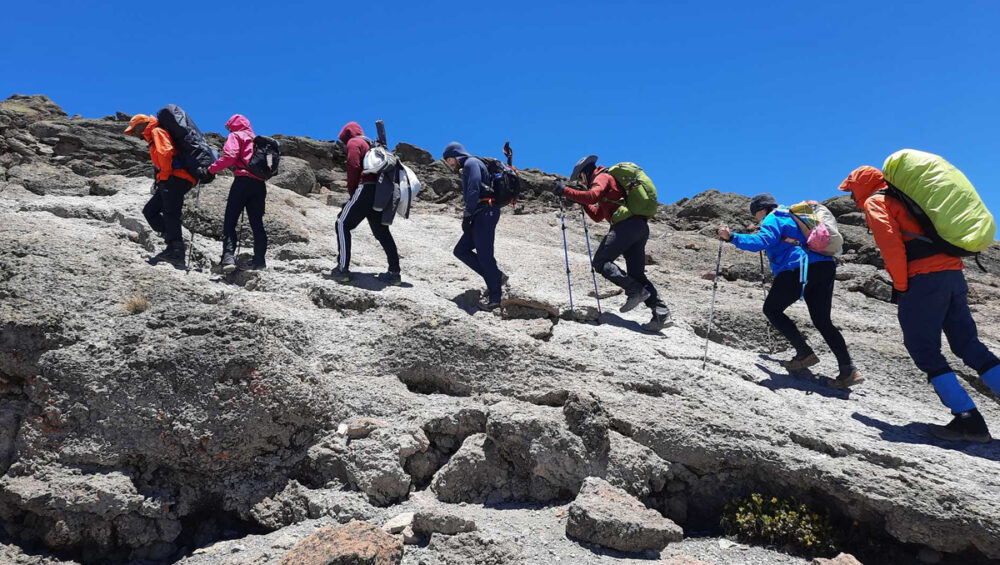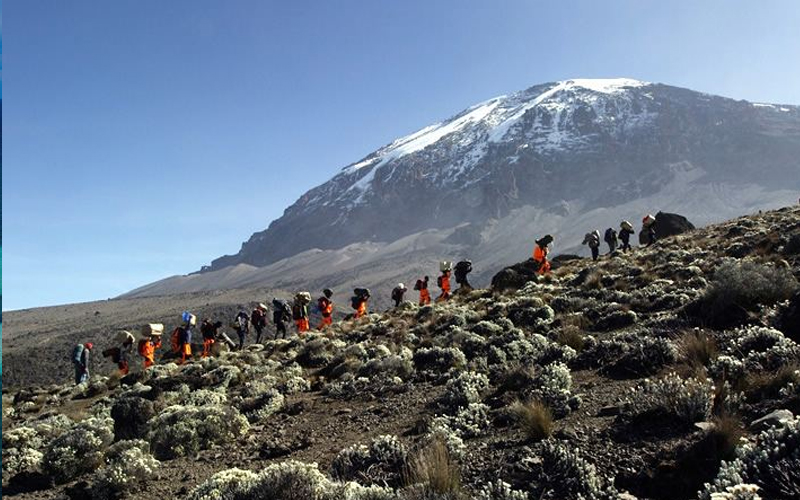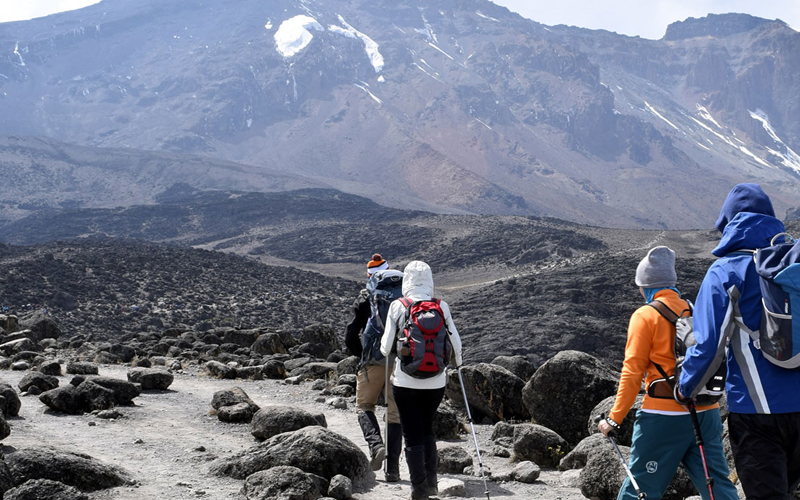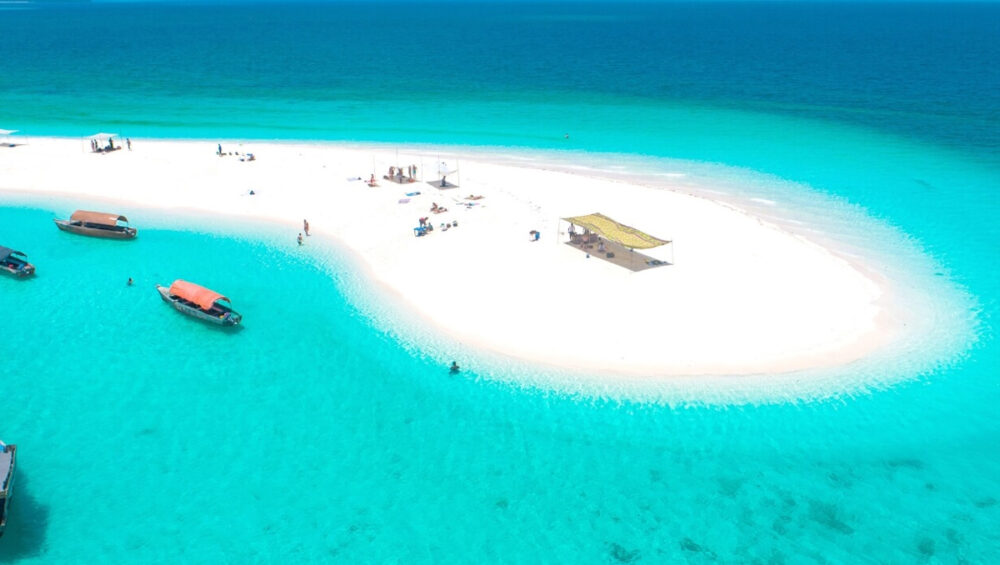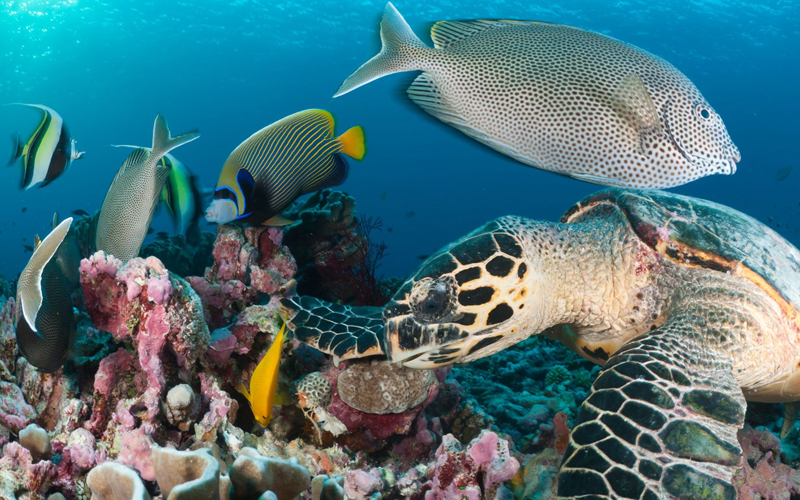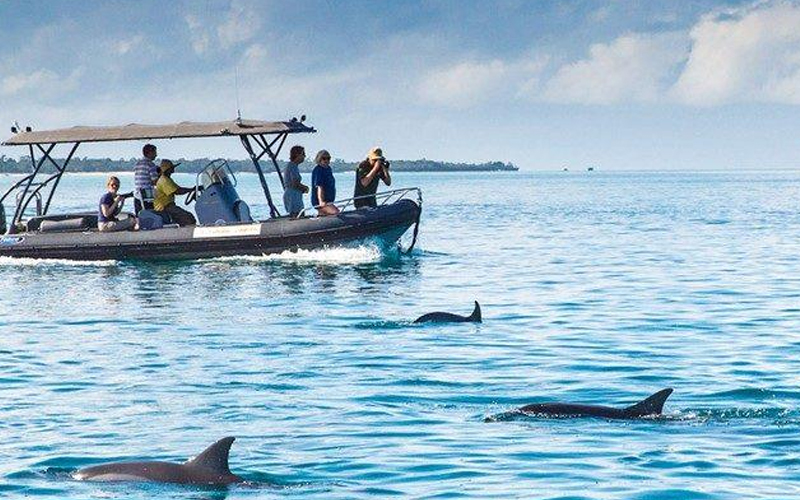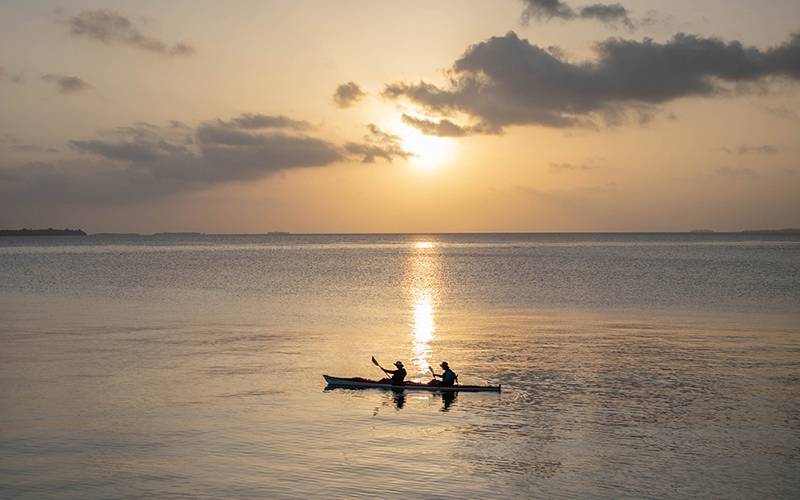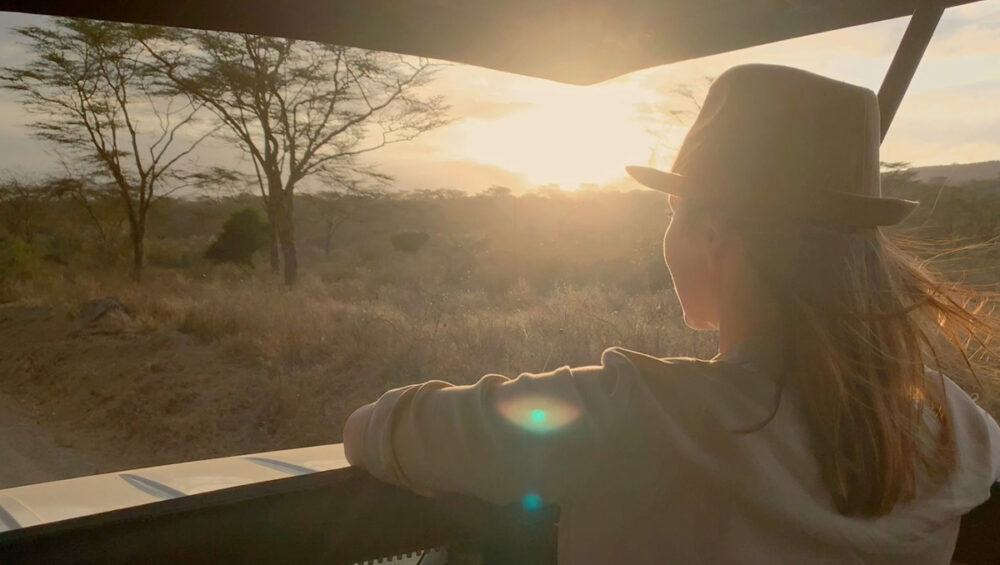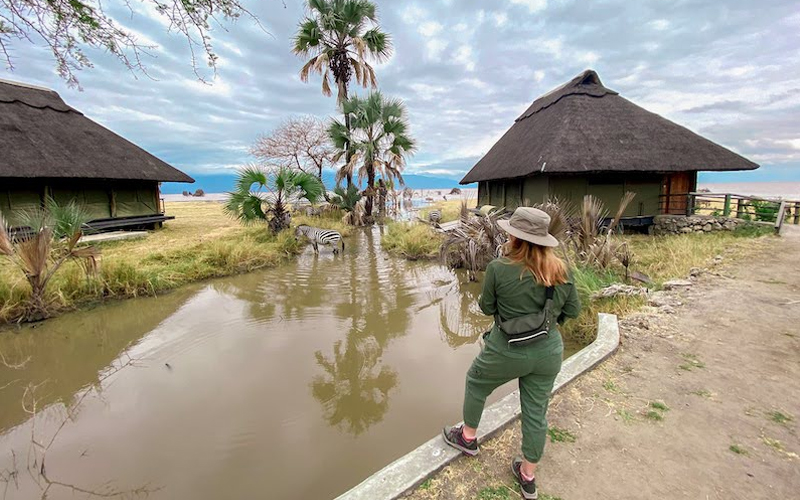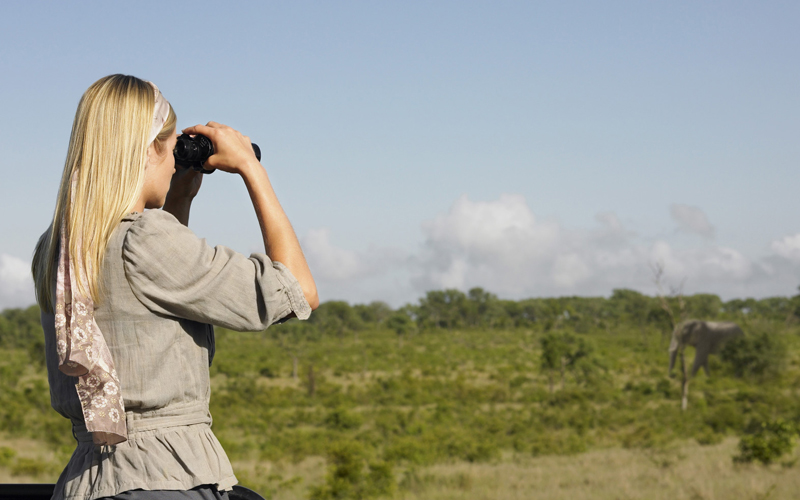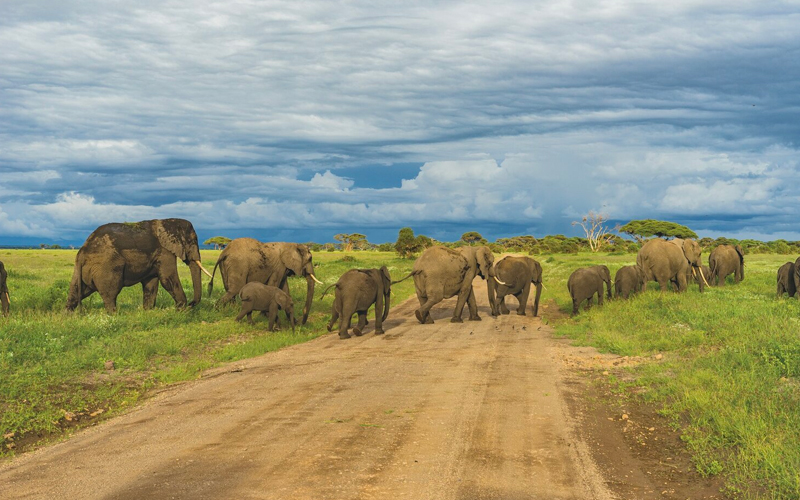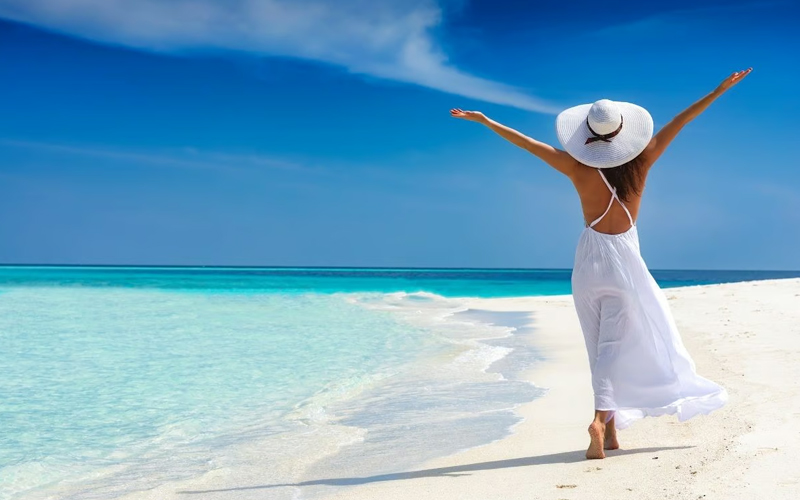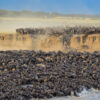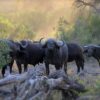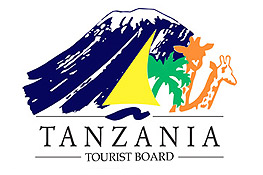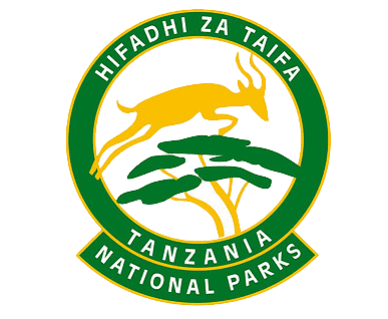Top Family-Friendly Beaches in Tanzania
Top Family-Friendly Beaches in Tanzania
Nungwi Beach, Zanzibar
- Why It’s Great for Families: Nungwi Beach, located on the northern tip of Zanzibar, is a favorite among families for its calm waters and vibrant atmosphere. The beach is known for its shallow, clear waters, making it a safe spot for children to swim and play. The wide sandy shore is perfect for building sandcastles, and there are plenty of beachside restaurants that cater to families.
- Activities for the Whole Family: In addition to swimming and sunbathing, Nungwi offers opportunities for snorkeling, dhow boat tours, and visiting the local turtle sanctuary. The beach’s lively atmosphere, with its mix of locals and tourists, provides a fun and welcoming environment for families.
Kendwa Beach, Zanzibar
- A Calm and Relaxed Environment: Just a short distance from Nungwi, Kendwa Beach offers a more tranquil environment that is ideal for families looking to relax. The beach is less affected by tides, so you can enjoy the water at any time of day. The calm waves and wide, sandy beach make it a great spot for young children.
- Family-Friendly Accommodations: Kendwa is home to several family-friendly resorts and hotels that offer amenities like swimming pools, kids’ clubs, and family rooms. The relaxed vibe of Kendwa Beach is perfect for families who want to unwind and enjoy quality time together.
Jambiani Beach, Zanzibar
- An Authentic Local Experience: Jambiani Beach, located on the southeast coast of Zanzibar, offers a more authentic and laid-back experience for families. The beach is lined with traditional fishing villages, where you can immerse yourself in local culture. The shallow waters and gentle waves make it a safe place for kids to splash around.
- Educational and Fun Activities: Families can explore the local seaweed farms, go on a guided village tour, or take a boat trip to explore the nearby coral reefs. Jambiani’s quiet and serene atmosphere is perfect for families who want to enjoy a peaceful beach vacation while learning about local traditions.
Paje Beach, Zanzibar
- Adventure for the Whole Family: Paje Beach is known for its strong winds, making it a popular spot for kite surfing. While it may not be the first choice for families with very young children, it’s an excellent option for those with older kids and teens who are looking for adventure. The beach’s long stretch of sand and shallow lagoon provide plenty of space for beach games and water sports.
- Kite Surfing and More: In addition to kite surfing, families can enjoy paddleboarding, beach volleyball, and snorkeling. There are also several family-friendly cafes and restaurants along the beach where you can relax and enjoy a meal after a day of fun activities.
Kipepeo Beach, Dar es Salaam
- A Hidden Gem Close to the City: Kipepeo Beach, located just south of Dar es Salaam, is a hidden gem that offers a quiet and relaxing escape from the bustling city. The beach is known for its clean, white sand and calm waters, making it a safe and enjoyable spot for families.
- Perfect for a Day Trip: Kipepeo Beach is a great option for families looking for a day trip from Dar es Salaam. The beach is equipped with picnic areas, playgrounds, and a restaurant that serves delicious local dishes. It’s the perfect place to spend a relaxing day with your family, enjoying the sun and the sea.
Ras Kutani Beach, Mainland Tanzania
- Secluded and Peaceful: Ras Kutani Beach, located on the mainland just south of Dar es Salaam, offers a secluded and peaceful environment that is perfect for families. The beach is surrounded by lush forests and a freshwater lagoon, providing a unique and tranquil setting.
- Nature and Relaxation: Families can enjoy beach walks, swimming in the lagoon, or exploring the nearby forest trails. The calm and serene atmosphere of Ras Kutani Beach is ideal for families who want to disconnect from the hustle and bustle and reconnect with nature.
Mbudya Island Beach, Dar es Salaam
- A Quick Island Getaway: Mbudya Island, located just off the coast of Dar es Salaam, offers a quick and easy island getaway for families. The island is part of a marine reserve, and the beach is known for its crystal-clear waters and vibrant coral reefs.
- Snorkeling and Picnics: Mbudya Island is a great spot for snorkeling, with plenty of colorful fish and corals to explore. The island also has picnic areas and basic facilities, making it a great option for a family day trip. The short boat ride from the city makes it easily accessible, while still providing a sense of adventure.
Matemwe Beach, Zanzibar
- A Quiet and Relaxing Spot: Matemwe Beach, located on the northeastern coast of Zanzibar, is known for its quiet and relaxed atmosphere. The long stretch of white sand and shallow waters make it an ideal spot for families with young children.
- Local Culture and Marine Life: Families can take a boat trip to the nearby Mnemba Atoll for snorkeling, or visit the local fishing villages to learn about traditional Zanzibari life. Matemwe offers a peaceful retreat where families can unwind and enjoy the natural beauty of Zanzibar.
Tanzania’s diverse coastline offers a wide range of family-friendly beaches, each with its own unique charm and activities. Whether you’re looking for adventure, relaxation, or cultural experiences, there’s a beach in Tanzania that’s perfect for your family. From the lively atmosphere of Nungwi to the serene beauty of Ras Kutani, these beaches provide the ideal setting for creating lasting memories with your loved ones.
FAQs
1. What is the best time of year to visit Tanzania’s beaches with family? The best time to visit Tanzania’s beaches is during the dry season, from June to October, when the weather is sunny and the waters are calm. 2. Are there any safety concerns for children on these beaches? Most of these beaches have calm, shallow waters, making them safe for children. However, always supervise young children, especially when swimming. 3. Can we find accommodations suitable for families near these beaches? Yes, many of the beaches mentioned offer family-friendly accommodations, including resorts, hotels, and vacation rentals with amenities like kids’ clubs and family rooms. 4. Are there any beaches in Tanzania with lifeguards? While some popular beaches may have lifeguards, it’s not common across all beaches. It’s advisable to check with your accommodation or local guides for specific information. 5. What activities are available for kids on these beaches? Activities for kids include swimming, sandcastle building, snorkeling, kite surfing, and exploring local culture through village tours and nature walks. For an unforgettable Tanzanian adventure, explore the following highlights on our site: Visit our page for detailed information and tips to plan your perfect Tanzanian journey.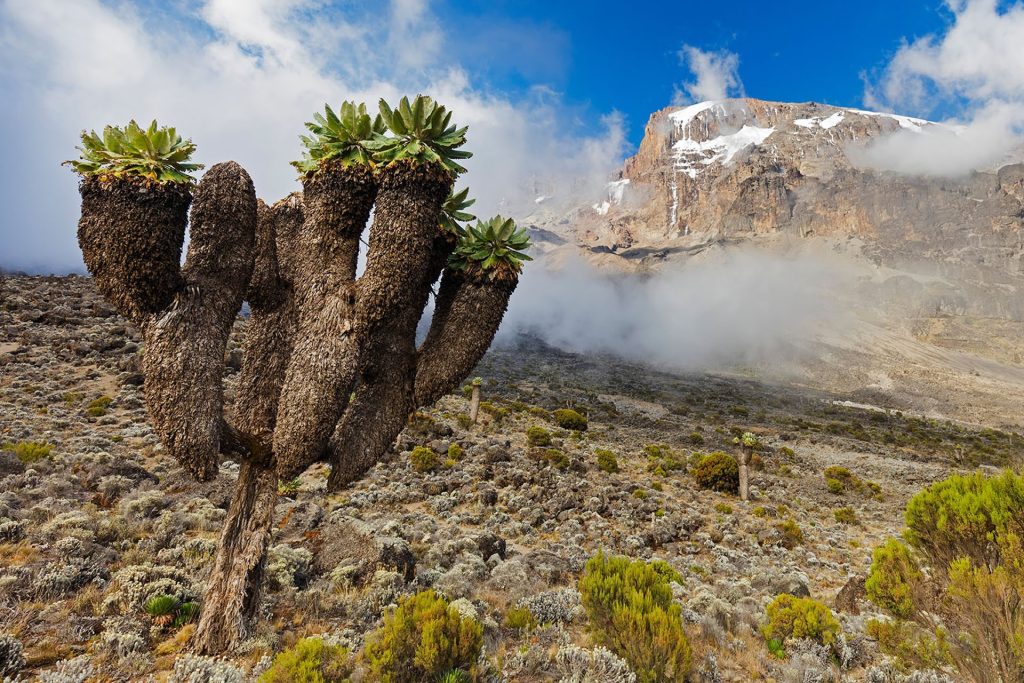
Kilimanjaro Climb
Book Hiking tours to Mount Kilimanjaro, The Roof of Africa, Best Prices Guarantee!
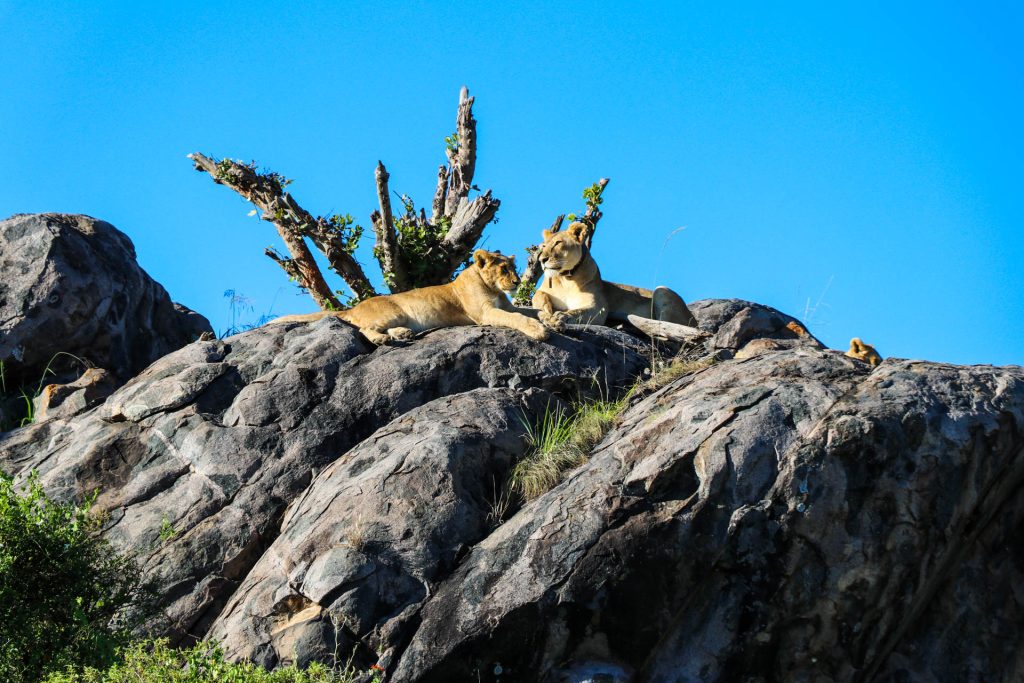
Tanzania Safari Vacations
Explore our Unforgettable Tanzania Budget, Mid-Range & Luxury Wildlife Safari.
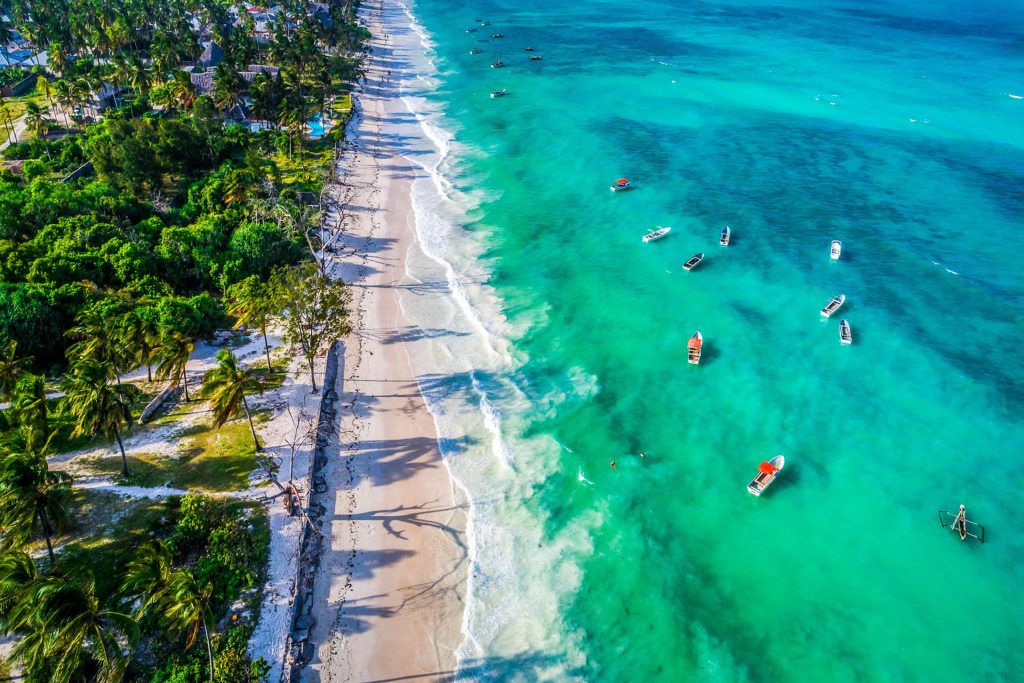
Beach Excursions
Visit Zanzibar Island and Coastal Tanzania for beach tours before and after a climb or safari.
ABOUT BOKER ADVENTURE…
Boker Adventure is a Tanzania Tours company located in Moshi town along the slope of Mount Kilimanjaro committed to offering local experiences such as Mount Kilimanjaro climbing experiences, Tanzania Wildlife Safari Experiences, Tanzania cultural tourism, bike tours, honeymoon, Air Ticketing and beach holidays. At Boker Adventures, we offer you a unique and comprehensive selection of Tanzania Private tours that are tailor made to suit your schedule and budget.
Please give us an opportunity to organize your African dream holiday!.

